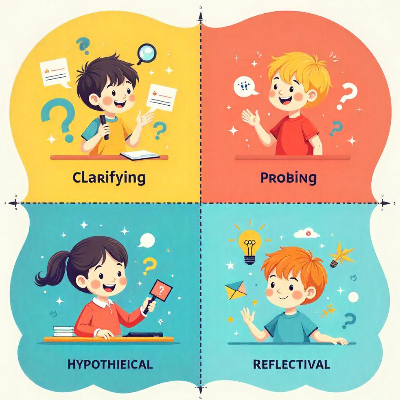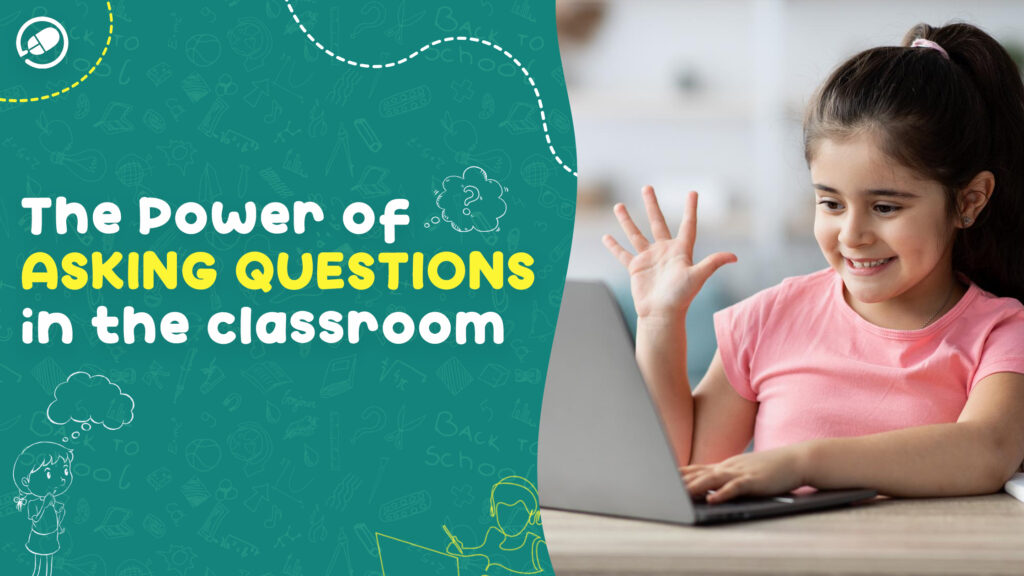Have you ever wondered why some students thrive in the classroom while others remain hesitant or disengaged? One often overlooked factor is a student’s ability and willingness to ask questions in the classroom. While it may seem like a small action, asking questions can significantly influence how well a student understands and retains new information. Yet, many children remain silent, unsure, or even fearful of speaking up during class. As parents, understanding the value of questioning and encouraging it can make a tremendous difference in your child’s academic experience.
Why Asking Questions Matters

Asking questions in the classroom is one of the most powerful tools in the learning process. It helps students clarify their understanding, engage more deeply with the material, and develop critical thinking skills. Moreover, it contributes to a richer classroom environment that benefits all students, not just the one asking.
When a student formulates a question, they are already engaging in higher-order thinking. They are identifying what they don’t fully understand and taking active steps to learn more. This process is a hallmark of active learning, and here are several reasons it’s so important:
1. Clarify misunderstandings:
Children often struggle with certain concepts but are hesitant to seek help. Asking questions allows them to clear up confusion in real-time. What’s more, when one student asks for clarification, it’s likely that others have the same doubts, so the entire class benefits.
2. Active learning:
Rather than passively absorbing information, asking questions in the classroom pushes students to participate actively in lessons. This makes the learning process more engaging and helps solidify new knowledge. Active learning is proven to improve comprehension and long-term retention.
3. Encourages critical thinking:
Asking questions also encourages critical thinking. By questioning the information being presented, students are able to analyse and evaluate it, rather than just accepting it at face value. This not only helps students to understand the material better, but it also helps them to develop their critical thinking skills, which are essential for success in any field.
4. Creates a positive learning environment:
When students ask questions in class, it creates a positive learning environment. It shows that students are engaged and interested in the material being taught. This, in turn, encourages other students to participate and ask questions as well. A classroom where students are actively participating and asking questions is a much more dynamic and engaging environment for learning.
5. Builds confidence:
Fear of judgment often keeps students from speaking up. But with practice and encouragement, asking questions in the classroom can become a powerful confidence-builder. When children see that their questions are valued and taken seriously, they begin to trust their voices, both in school and beyond.
Overcoming the Fear of Asking

Despite the clear importance of asking questions in class, many students hold back. They worry about looking unintelligent or wasting class time. As educators and parents, we need to help students understand that asking questions in the classroom is a sign of intelligence, not weakness.
One technique is to normalize question-asking by having structured question time. Another approach is to allow written or digital questions for those who feel uncomfortable speaking up. The goal is to ensure everyone has access to the benefits of good questioning in the classroom.
Types of Questions That Promote Learning

Not all questions are created equal. The importance of asking questions in class extends to understanding which types of questions promote deeper thinking. Consider these categories:
- Clarifying questions: “Can you explain what you mean by…?”
- Probing questions: “What evidence supports that idea?”
- Hypothetical questions: “What might happen if…?”
- Reflective questions: “How does this connect to what we learned before?”
By encouraging students to ask these types of questions, parents and teachers alike can help them move beyond memorisation toward true understanding.
Never Underestimate the Value of a Question

Never underestimate the value of a student’s question. When children feel empowered to ask, they take ownership of their learning. They become more confident, more engaged, and more successful in the long run.
As a parent, fostering this habit is one of the best academic tools you can offer. Encourage your child to speak up in class, reassure them that questions are a normal and essential part of learning, and partner with teachers to support a classroom culture where curiosity thrives.
How Cyboard School Encourages a Culture of Curiosity
At Cyboard School, where learning happens in a fully online environment, encouraging students to ask questions is a core part of the teaching philosophy. Teachers at Cyboard are trained to create an inclusive and supportive digital classroom where students feel comfortable speaking up, whether through live discussions, chat functions, or question submission portals. By making space for every type of learner to ask questions in their own way, Cyboard ensures that curiosity is nurtured and learning is deepened. This commitment to active participation and student voice reflects the school’s broader mission: to empower learners with confidence, clarity, and critical thinking skills that go beyond the virtual classroom.
Join Cyboard School, where every question matters and curiosity leads the way. Experience a classroom that values your voice, supports your growth, and turns confusion into clarity.Visit our website, and don’t miss our LMS video to see how students from all grades learn seamlessly in our online school.
Explore More on Cybaord School


